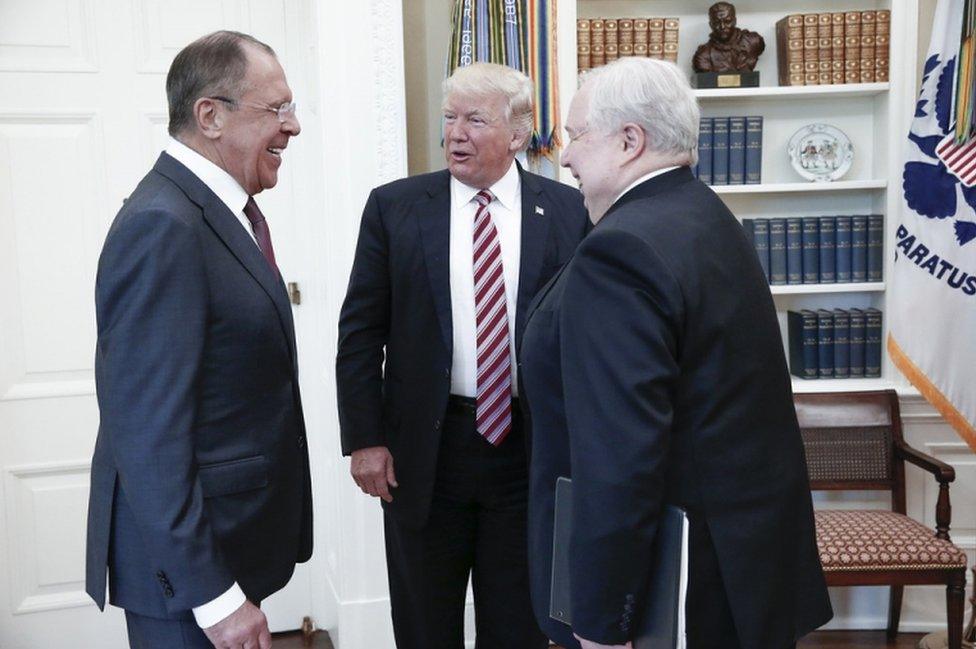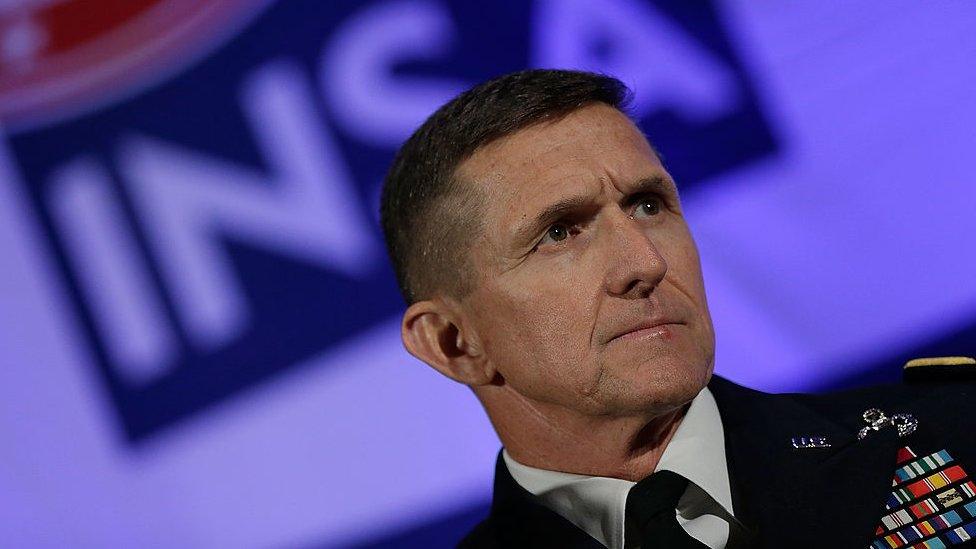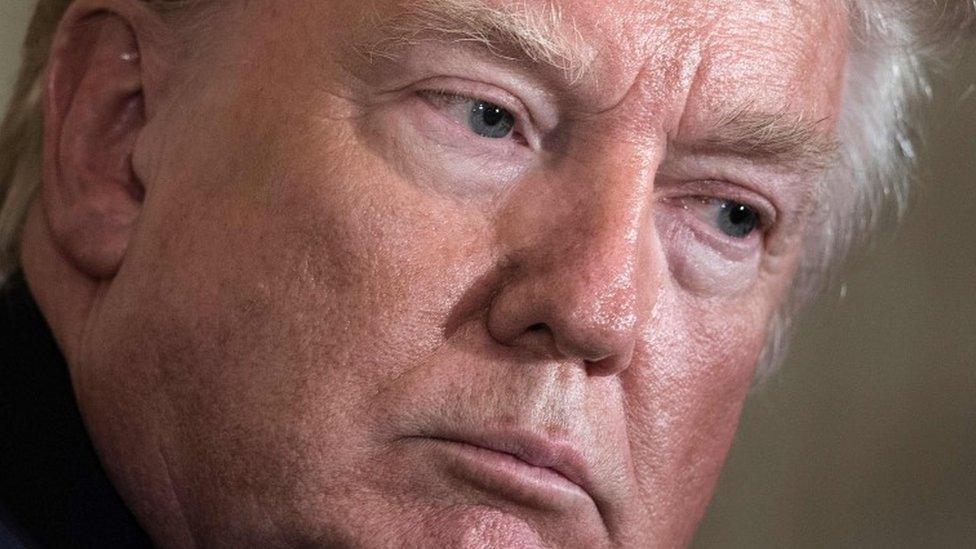Ex-national security adviser 'lied' on security clearance
- Published
Gen Michael Flynn explains Donald Trump's appeal during the campaign
Ex-US National Security Adviser Michael Flynn "lied" about income from Russian companies while renewing his security clearance, a top Democrat says.
Elijah Cummings released a letter that shows Mr Flynn said his foreign trips were paid for by US firms, but a Moscow visit was funded by a Russian company.
The claim follows Mr Flynn's refusal to hand files to a Senate panel probing alleged Russian political meddling.
He was fired after misleading the White House about his Russian contacts.
The fresh allegations against him came hours after he invoked his right against self-incrimination on Monday and failed to co-operate with a Senate panel's investigation on possible links between the Trump campaign and the Kremlin.
The Senate Intelligence Committee issued a subpoena - a legal summons - two weeks ago to obtain documents related to Mr Flynn's contacts with Russians dating back to June 2015.
But in a letter to the panel, his lawyers said he was rejecting its request in response to the current political climate and an "escalating public frenzy against him".
The former Army lieutenant general is invoking the fifth amendment to the US constitution, which protects Americans from being legally compelled to testify against themselves in a criminal case.
Mr Cummings, the top Democrat on the House Oversight Committee, later published a letter urging the panel's chairman, Jason Chaffetz, to subpoena the documents.
The letter highlights a February 2016 interview in which Mr Flynn told security clearance investigators that he was paid by US companies when he travelled to Moscow to dine at a gala with Russian President Vladimir Putin the year before.
But the trip was actually paid for by Russian state news agency RT.
President Trump said Michael Flynn had been "treated very unfairly by the media"
If Mr Flynn did lie to investigators, he could face felony charges and up to five years in prison.
Also on Monday, a new report claims President Trump allegedly asked two top national security officials to publicly deny that there was any evidence of collusion.
The Washington Post says, external he made the request to Director of National Intelligence Daniel Coats and Admiral Michael S Rogers, the director of the National Security Agency, in March.
Both refused to comply with the request, the newspaper quoted current and former officials as saying. The White House has not yet commented on the allegations.
Mr Flynn has been mired in controversy since he stood down from his new role as national security adviser in February.
It emerged that he had misled the White House about discussing US sanctions against Russia with Moscow's envoy, Sergei Kislyak, before Mr Trump took office.
Shortly after Mr Flynn left the White House, the Department of Defense also launched an inquiry into the payments he received for the RT gala, and for lobbying on Turkey's behalf.
Senate Intelligence Committee chairmen Senators Richard Burr and Mark Warner said they were "disappointed" at his decision not to hand over files on Monday.
However Mr Flynn's letter to the Senate panel says that his refusal to testify is not an admission of wrongdoing.
If Mr Flynn continues to refuse to comply, it is thought Senate investigators could vote to hold him in contempt of Congress or even refer his case for possible criminal charges.
Two other former top Trump aides - Paul Manafort and Roger Stone - have reportedly complied with the committee's request for information.
Two congressional inquiries and an FBI investigation are looking into claims that Russian hackers tried to help Mr Trump win last November's presidential election, and whether members of his campaign colluded with the alleged Kremlin conspiracy.

Trump met with the Russians at a meeting that US media were not invited to cover
Mr Trump injected fresh impetus into the Senate investigation after he himself met the Russian ambassador and foreign minister in the White House earlier this month, only a day after firing FBI chief James Comey.
The US president said in that encounter that Mr Comey was a "real nut job" and his dismissal eased "a great pressure because of Russia", the New York Times reported.
Last week, former FBI director Robert Mueller was appointed as special counsel to lead the FBI investigation following Mr Comey's dismissal.
- Published25 November 2020

- Published19 May 2017
- Published20 May 2017
